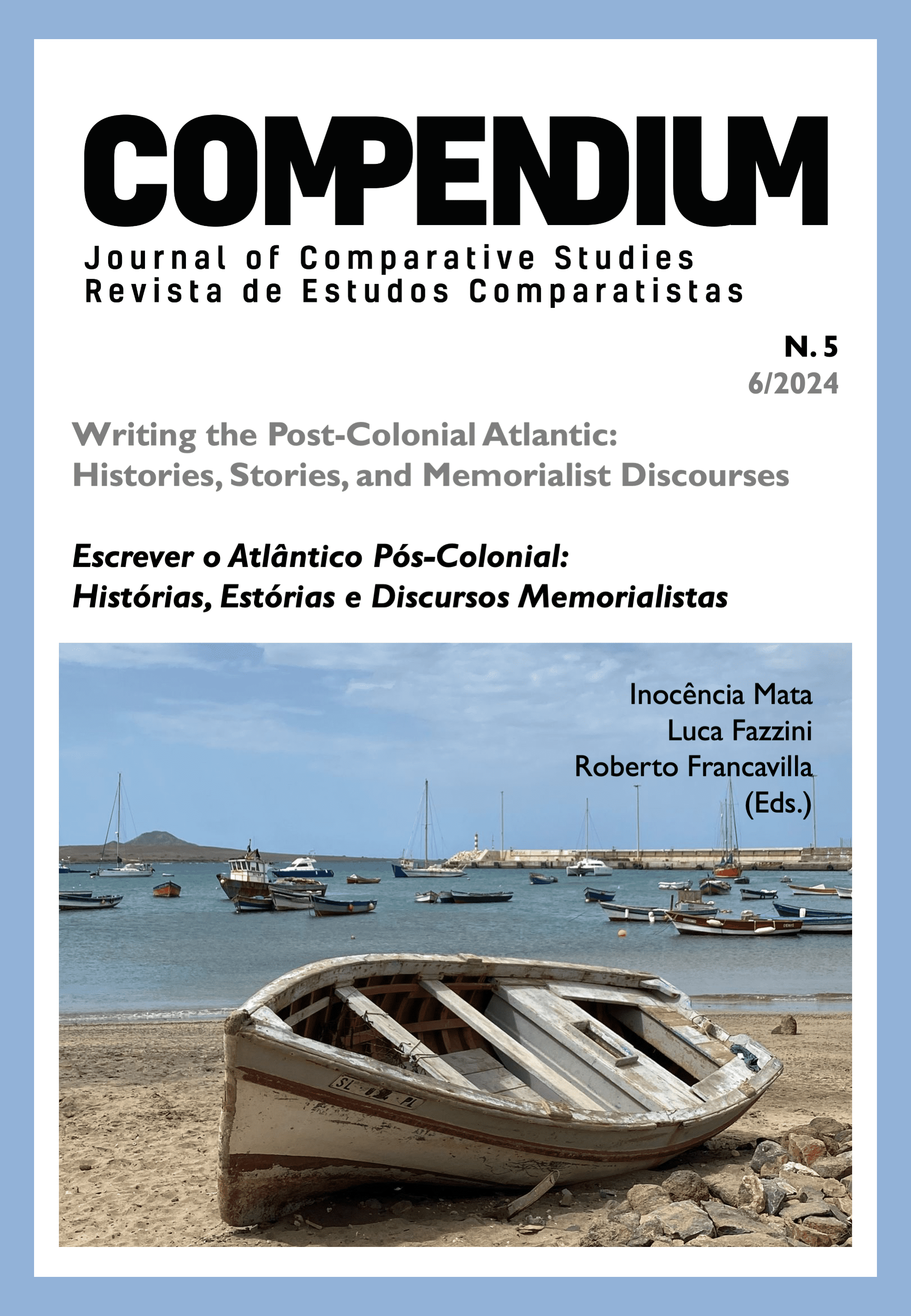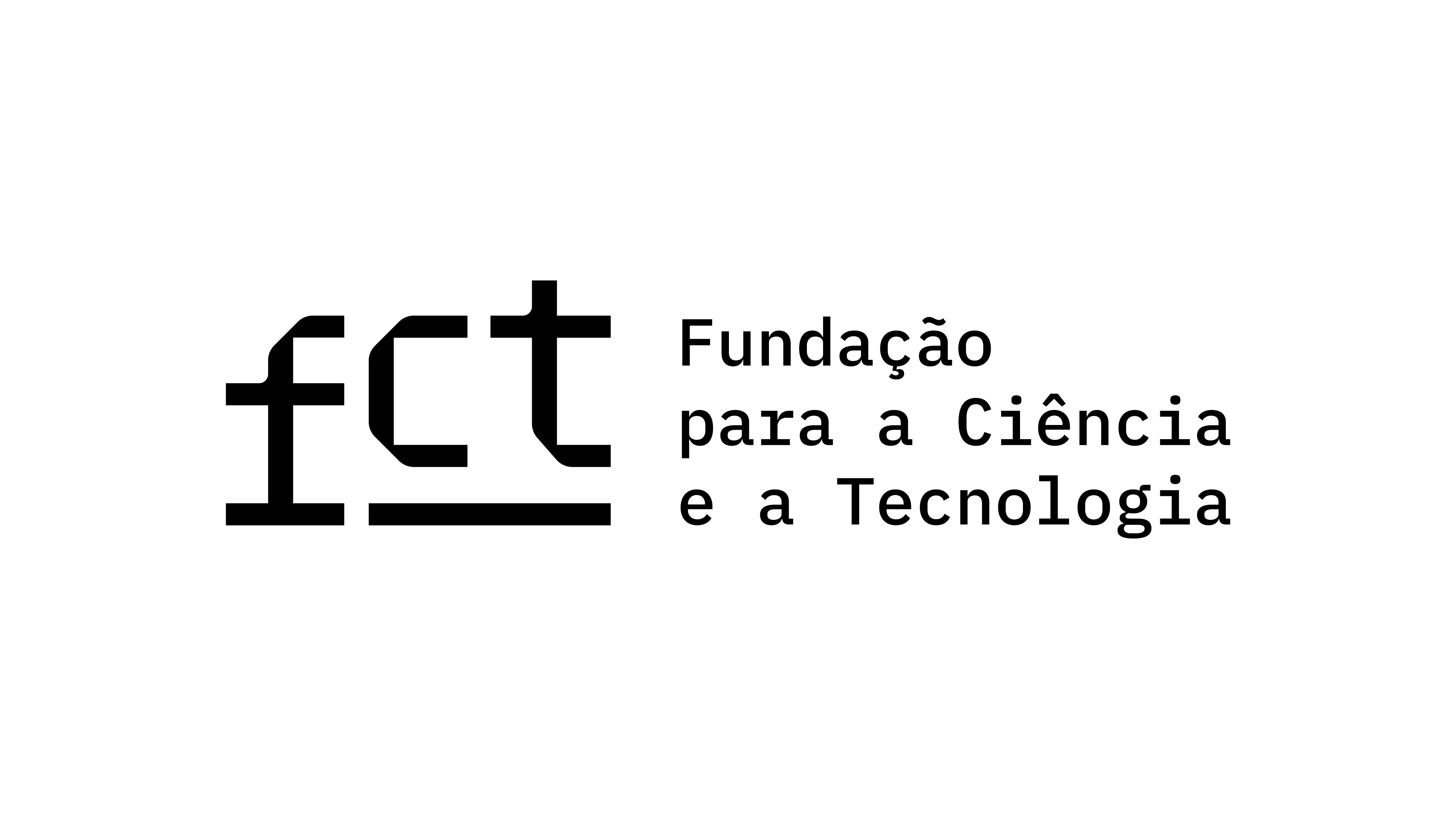Mapping the Post-Colonial Atlantic
Cultural and Literary Interactions
DOI:
https://doi.org/10.51427/com.jcs.2024.05.0001Keywords:
Atlantic studies, postcolonial perspectives, coloniality, cultural interactionsAbstract
The collection of essays presented in this volume, the fifth issue of Compendium, provides a literary and cultural mapping of the Atlantic that, through a critical-theoretical post-colonial perspective and a comparative approach, enables us to (re)assess the circulation of texts and cultures within the Atlantic space in the light of unequal power relations that are intrinsic to colonial modernity. Furthermore, the collection highlights the multiple forms of micro- and macro-physical violence underlying contemporary migrations which have always borne the scars of the colonial nature of knowledge and power. This dossiercomprises a series of essays that engage in dialogue with the social sciences, pedagogy, and literary studies, alongside two critical reviews.
Downloads
References
Bauman, Zygmunt. 1999. Globalização: As Consequências Humanas. Rio de Janeiro: Jorge Zahar.
Bethencourt, Francisco. 2015. Racismos – Das Cruzadas ao Século XX. Lisboa: Temas & Debates/Círculo de Leitores.
Boehmer, Elleke, ed. 1998. Empire Writing: An Anthology of Colonial Literature, 1870-1918. Oxford: Oxford University Press.
Branche, Jerome C. 2018. Post/Colonialism and the Pursuit of Freedom in the Black Atlan-tic. New York, NY: Routledge.
Gilroy, Paul. 1993. The Black Atlantic: Modernity and Double Consciousness. London/New York: Verso.
Hall, Stuart. 2003. Da Diáspora. Identidades e Mediações Culturais. Belo Horizonte: Edito-ra UFMG.
Lugarinho, Mário César, and Inocência Mata. 2021. “Um campo de batalha abandonado: a incômoda memória da literatura colonial portuguesa (1926-1974)”. Veredas: Revista da Associação Internacional de Lusitanistas, Issue 36 (jul./dec.): 26-40.
Mata, Inocência. 2016a. “Deslocamentos imperiais e percepções de alteridade – O caso da literatura colonial portuguesa”. Abril – Revista do Núcleo de Estudos de Literatura Portuguesa e Africana da UFF (Niterói) 8 (16): 89-102.
Mata, Inocência. 2016b. “Localizar o pós-colonial”. In: Pós-Colonial e Pós-Colonialismo: Propriedades e Apropriações de Sentido, edited by Flavio García and Inocência Mata, 32-50. Rio de janeiro: Dialogarts.
Mata, Inocência. 2013. A Literatura Africana e a Crítica Pós-Colonial: Reconversões. Ma-naus: Editora UEA.
Mata, Inocência. 1989. “O texto colonial: uma questão estético-ideológica”. Mensagem, Is-sue 4: 32-39.
Matory, J. Lorand. 2005. Black Atlantic Religion: Tradition, Transnationalism, and Matri-archy in the Afro-Brazilian Candomblé. Princeton: Princeton University Press.
Mbembe, Achille. 2021. Out of the Dark Night: Essays on Decolonization, translated by Daniela Ginsburg. New York, NY: Columbia University Press.
Mbembe, Achille. 2020. “Afropolitanismo”. NKA: Journal of Contemporary African Art, Is-sue 46: 56-61.
Mignolo, Walter D. 2000. Local Histories/Global Designs: Coloniality, Subaltern Knowledg-es, and Border Thinking. Princeton: Princeton University Press.
Mudimbe, Valentin-Yves. 1988. The Invention of Africa. Gnosis, Philosophy, and the Order of Knowledge. Bloomington/Indianapolis: Indiana University Press.
Santiago, Silviano. 2000. Uma Literatura nos Trópicos. 2.ed. Rio de Janeiro: Rocco.
Silva, Alberto da Costa e. 2014. Um Rio Chamado Atlântico – A África no Brasil e o Brasil na África. São Paulo: Nova Fronteira.
Wallerstein, Immanuel. 2011 [1980]. The Modern World-System I: Mercantilism and the Consolidation of the European World-Economy, 1600-1750. California: University of California Press.
Downloads
Published
How to Cite
Issue
Section
License
Copyright (c) 2024 Inocência Mata, Luca Fazzini, Roberto Francavilla

This work is licensed under a Creative Commons Attribution 4.0 International License.
Compendium embraces online publishing and open access to all issues. Authors retain copyright and grant the journal right of first publication with the work simultaneously licensed under a Creative Commons Attribution 4.0 International (CC BY 4.0), that allows others to share the work with an acknowledgement of the work's authorship and initial publication in this journal.











